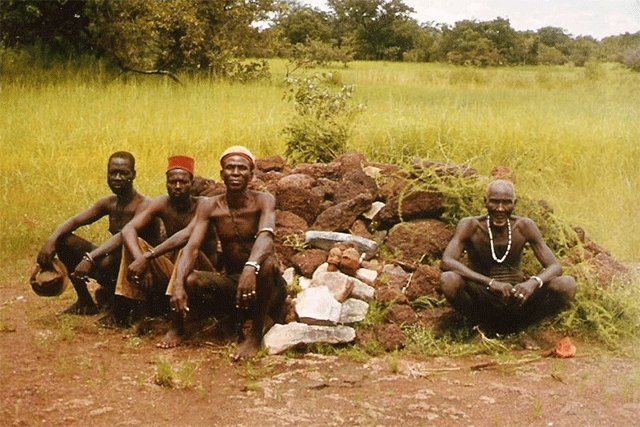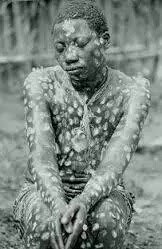In Nigeria, religion and culture are interwoven. Despite that the two major concepts are significant, they are reportedly the major cause of conflicts in Nigeria’s social system. While religion in some regions of the country is what defines them, some believe that culture is the original reason for living.
However, some scholars have indicated that both religion and culture, if not properly mastered and understood, can be a source of problems and even crises if not properly managed. For instance, the Northern people believe mostly in the practice of Islamic religion, while the Yorubas are mostly known for their traditional belief system.
While civilization is the reason for the abolition of some harmful cultural practices, research has shown that it is also the reason for Nigeria’s failure to reject colonization and or imperialism. However, in some parts of the country, these cultural beliefs are still being cherished and sustained.
Some researchers found that while some cultural practices are being sustained, others are being abolished, and one such culture is the Osu Caste, prevalent in the Igbo tribal system. The Osu caste system is a long-standing custom in Igboland that forbids social interaction with and marriage to a class of people known as Osu (Igbo outcasts). Osus are devoted to the Igboland deities called Alusi; they are typically separated from the Nwadiala or diala since they are viewed as lesser beings to the Igbo real born.
Despite widespread criticism of the system that has caused trauma to so many innocent people, the culture still exists. The Osu system of discrimination, however, is an outmoded custom with no support for its continued use and observance in modern Igbo society.
In this piece, Naijabiography will be exploring the origin of Osu caste and the cultural practice in the advent of civilization.

History
The Nwadiala and the Osu are the two traditional classes of people in Igboland. The Nwadiala is an abbreviation for “sons of the earth,” because they are the masters. While the Osus are considered slaves, foreigners, outcasts, and untouchables, they are the people who have dedicated their lives to the gods.
This is why a renowned creative writer and author of an award-winning book titled “No longer at ease,” Chinua Achebe, referred to the practice of Osu caste as the result of the ignorance of our forefathers, giving an innocent life to the idol.
The history of the Osu can be traced to when the Igbo city-states were governed by earthly rules known as Odinani during the time when the Osu caste system first emerged. In order for the nation to be blessed and to prosper in the territory that Chukwu, the Supreme God, had granted them, the deity known as Ala, set out regulations that the people had to abide by. Therefore, in order to appease the earth’s deity’s wrath and stop the spread of abomination among the state’s population, offenders who were found guilty of serious abominations were exiled. They, however, recognized these exiles as Osu.
These Osu people in those days were either sold into slavery to other men or given to particular deities who were thought to demand human sacrifice during festivals in order to purge the country of abomination, which resulted in the people buying slaves.
One perspective on the history of the Osu caste system cites a major role. This is because when an individual or group of people who disobey a king’s orders or a community’s choice are expelled from the community, the victim and his offspring become known as osus.
Since then, the Osus have been subjected to numerous kinds of abuse and discrimination and are kept in a condition of permanent and irreversible handicap as a result of their treatment as inferior human beings. The Osu, according to history, was designed to live apart from the freeborn; they hung out near markets and shrines. This is because it is forbidden for the Osu to dance, consume alcohol, hold hands, associate with, or engage in sexual activity with the Nwadiala. At any community event, they are not even permitted to split kola nuts, pour libations, or pray to God on behalf of a freeborn.
According to the Igbo people, if they are allowed to mingle with the Nwadiala, they become a source of calamities and misfortunes. So, since then the Osus are perceived as unclean and should not be allowed where ‘normal’ human beings are.

The Abolition of Osu Culture
On March 20, 1956, Igbo MPs in the Eastern House of Assembly, Enugu, abolished the then-common practice of calling people “osus.” History has it that imposed fines made people reluctant to use the term “osu” in public.
This proposition was introduced as a result of the advent of civilization, which, according to some human rights activists, is seen as a violation of human rights against discrimination. Meanwhile, the punishment given to Osus in Igboland includes parents administering poison to their children and disinheritance, among others.
However, one would think the fine rules introduced would end the Osu caste culture, but history has it that some areas in Igboland were still practicing the culture that they intended to sustain, despite the advent of modernization in the country.
According to history, on December 28, 2018, a ceremony held at Nri, the renowned ancestral home of the Igbo people, in the Anaocha local government area of Anambra State, abolished the Osu Caste System. Nigeria: Osu Caste System in Igboland Ends Today was the slogan for the occasion.
Also, on April 7, 2021, 119 villages from the nine autonomous communities in Nsukka town, Nsukka Local Government Area, Enugu State, met for another ceremony to abolish the Osu Caste System in their communities.





